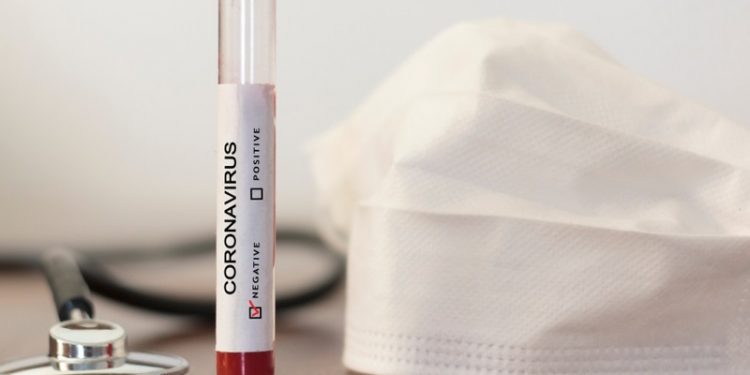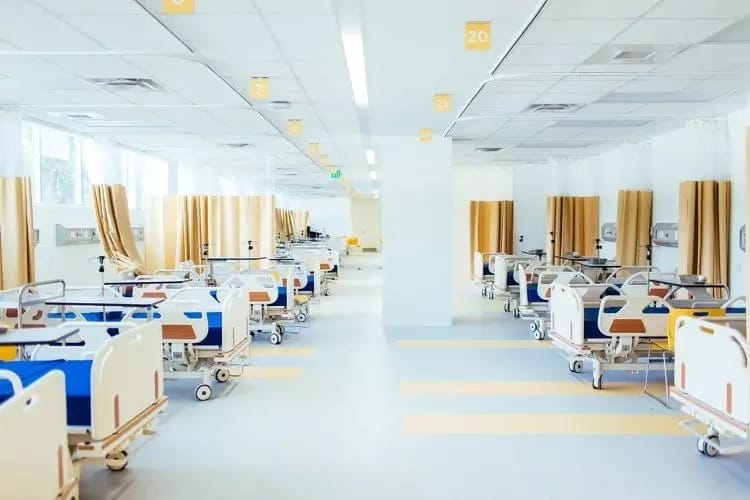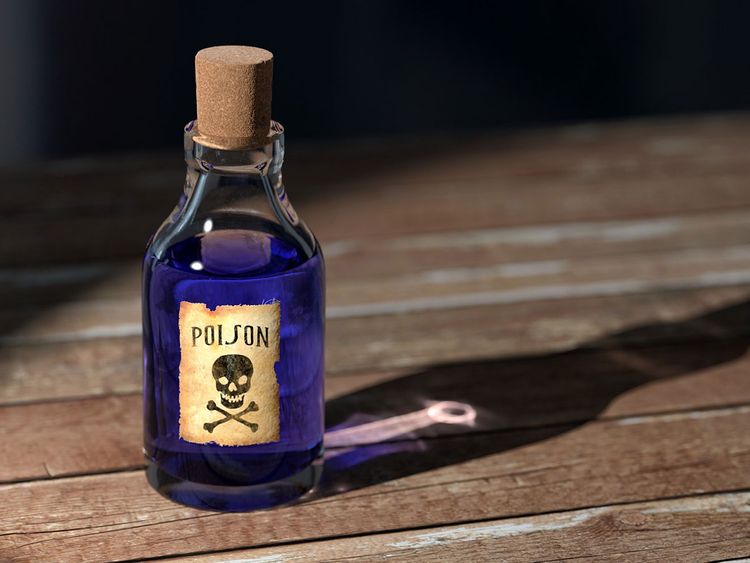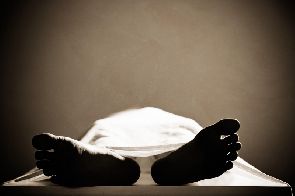A month since Ghana’s first coronavirus case: 12 major happenings

It was a day after President Nana Addo Dankwa Akufo-Addo addressed Ghanaians on the country’s preparedness to fight the pandemic, setting aside one hundred million dollars to enhance the plan. Prior to this, he had ordered the suspension of all international travels by public officials, except for critical assignments which would have to be authorized by the Chief of Staff at the Office of the President.
Two imported cases were confirmed and other measures were announced to “limit and stop the importation of the virus; contain its spread; provide adequate care for the sick; limit the impact of the virus on social and economic life, and inspire the expansion of our domestic capability and deepen our self-reliance.”
Here are twelve (12) major developments in Ghana over the last month:
1. More lockdowns, restrictions
The increase in the number of case counts triggered the imposition of a lockdown in some parts of the country and an extension of the border closure period in an effort to slow the spread of the virus.
In his 6th televised address on the country’s fight against the pandemic, President Akufo-Addo extended the restrictions on movements in Greater Accra, Greater Kumasi, Tema and Kasoa by one more week, beginning 1am on Monday, 13th April, subject to review. A 14-day restriction on movement had been placed on the aforementioned areas because significant numbers of virus infections had been recorded there.
“Clearly, until we have the situation fully under control, we cannot, at this time, open our borders. They will have to remain shut until further notice,” he said.
The president has also extended the initial one-month ban on public and social gatherings by two weeks effective April 13.
2. Community cases exceed imported, death toll increases
If there is one thing which formed the basis of officials allaying fears, it was the fact that all confirmed cases were at a point imported. The narrative has changed with the 566 tally.
According to the Ghana Health Service, 66.6% of confirmed COVID-19 cases in Ghana had no history of travel while 33.4% had some history of travel. Also, 42% are female while 48% are male.
The breakdown of the 566 positive cases are as follows: four (4) have been treated, discharged and tested negative, 552 cases have been categorized as mild disease on treatment, two (2) moderate to severe cases, none currently on ventilators and eight (8) have died.
Regions that have reported cases are Greater Accra, Ashanti, Central, Eastern, Northern, North East, Upper East, Western, Volta and Upper West. The Greater Accra remains Ghana’s epicentre of the outbreak with 452 cases.
3. Alleged brutalities
The enforcement of the restrictions on movements appears to have been problematic as some military and police personnel have been accused of assaulting civilians who allegedly flouted the orders. The lockdown restrictions came with a caveat that citizens in affected areas would only leave their homes in search of essential items like food, medicine and water.
Persons providing essential services aligned to the production, distribution and marketing of food, beverages, pharmaceuticals, medicine, paper and plastic packages, environmental and sanitation activities, road and railway construction workers, members of the security agencies, workers at fuel stations and staff of utility, telecommunications, e-commerce and digital service providers were also exempted.
However, some widely circulated video clips captured some civilians being brutalized by some officers for refusing to adhere to the protocols.
General Officer Commanding, Southern Command of the Ghana Armed Forces, Brigadier General Abraham Yeboah Nsiah responding to the development said all videos on military brutality are false except one.
“Soldiers that you have are well trained, they are professionals, they don’t brutalize,” he said.
It is instructive to state that there has been a significant change after the statement was made.
4. Dangerous benevolence
Quite a number of individuals and organizations have heeded to calls to extend a helping hand to the vulnerable. ‘Leadership by example’ – the saying goes; and so the president and his vice Dr. Mahamudu Bawumia donated their three months’ salary to the COVID-19 Trust Fund while Ministers of State, the Chief of Staff at the Office of the President, the deputy Chiefs of Staff, Secretary to the President, Secretary to the Cabinet, Presidential Staffers and Presidential Aides at the Presidency decided to donate 50% of their salaries, for the next three months.
Former President John Mahama has also been donating PPEs and some other items.
While government and the World Health Organization are entreating all to adhere to social distancing as one of the measures to curb the spread, that protocol is not heeded to when individuals and organizations share food items in communities affected by the lockdown. There have been many instances where GhanaWeb cameras captured beneficiaries defying the social distancing directive to grab free food items. In some instances, they trade blows!
5. Korle-Bu doctors threaten strike
Disgruntled doctors at the Department of Accident and Emergency at the country’s frontline hospital, Korle-Bu threatened to lay down their tools and withdraw their services over what they described as a poor level of preparedness of the unit in the fight against the fast-spreading deadly Coronavirus.
In a Memo, they made five demands: provision of appropriate PPEs including N-95 face masks; provision of a proper isolation unit for suspected cases in lieu of the current sideward we use at ‘yellow’; expediting the testing of all staff of the department for SARS-Cov2; creating clear channels of communication between management and the staff of the department in order to prevent the events surrounding the first confirmed case from happening again, and the immediate closure of the ER for fumigation.
The doctors rescinded their decision after the government’s intervention.
6. Residents oppose Bishop Titi-Ofei’s coronavirus isolation centre offer
Leader of the Titi-Ofei Ministries, Bishop Gideon Titi-Ofei withdrew his offer of a 100-bed facility to be used as an isolation centre for persons affected by Coronavirus following a massive protest by residents.
Reports suggested some residents of the Tema-West enclave objected to the usage of the place for the proposed purpose with reasons they were not consulted on the issue and feared they would be exposed to the deadly pandemic considering it is in close proximity to their buildings.
Sanitation was another concern as residents, according to information gathered by legal practitioner Sammy Darko, had on several occasions reported to the Tema West Municipal assembly about the deplorable nature of the sewage system of the facility and have witnessed on several occasions when the facility was in used as a school that faecal matter were discharged into the gutter. That all fluids from the facility also passes through the same gutter from the facility.
7. Akufo-Addo announces reliefs
In an attempt to ease the burden on Ghanaians as parts of the country is on lockdown, the president during his 5th and 6th addresses announced some reliefs. He disclosed that government will absorb water bills for all Ghanaians for the next three months – April, May, June. He also announced three months of free electricity for consumers of a particular category and 50% waive off for consumers in residential areas as well as those engaged in commercial activities during the period using their March 2020 bill as the benchmark.
50% pay rise for frontline health workers and tax holiday for all health workers for the next three months – April, May, June – were also announced as incentives.
In addition, government, according to the president, will roll out a soft loan scheme up to a total of six hundred million cedis (GH¢600 million), which will have a one-year moratorium and two-year repayment period for micro, small and medium-scale businesses.
8. ‘Brawl’ over Heritage Fund
Finance Minister, Ken Ofori-Atta addressing Parliament on the economic impact of coronavirus on the country called for the amendment of the Petroleum Revenue Management Act (PRMA) so the government could utilize portions of the Heritage Fund to combat the pandemic. The request however faced criticisms from the Minority in Parliament and a section of the public.
Among others, they suggested a reduction in government size and halting the payment of ex-gratia will help the government save money to aid the fight.
The Public Interest and Accountability Committee (PIAC) kicked against the government’s decision to use the Heritage Fund to finance the fight against the novel coronavirus pandemic in the country.
“PIAC strongly urges Government not to disturb the arrangements that underpin the PRMA,” a statement from the outfit read.
9. Minority battles Speaker
Minority MPs expressed discontentment following Speaker Prof. Mike Oquaye’s decision to recall the House three days after suspending sitting indefinitely. A statement from Parliament said the MPs were being called back to allow the Finance Minister to present a policy statement to the House on measures to contain the pandemic.
The Minority argued that they had travelled to their constituencies and will be inconvenient to return considering the danger coronavirus poses. Chief Whip, Mohammed Mubarak Muntaka while criticizing the Speaker’s decision urged colleagues who are available to show up, adding that they would indulge the government if it brings up only matters relating to the fight against the disease.
10. Market disinfection
Some markets in the Greater Accra and Ashanti regions have been disinfected. While Dr Eric Oduro Osae, Technical Advisor, Ministry of Local Government and Rural Development, mentioned that the exercise was part of efforts to contain the outbreak, Deputy Minister of Local Government, Osei Bonsu Amoah said the disinfectant has no efficacy to kill and prevent coronavirus.
“What we’re doing is not to prevent coronavirus. Anybody that tells you that the disinfection we’re undertaking today has the efficacy of killing coronavirus is a lie. If along the line, government secures coronavirus disinfectants we’ll make it known to the public,” Mr. Osei Bonsu was quoted to have said on Kasapa FM.
11. Relief as UG scientists successfully sequence virus genomes
The resurrection of Christ which was commemorated on Sunday, April 12 came along with some good news as a section of the populace made a toast following a release from the University of Ghana that scientists at the Noguchi Memorial Institute for Medical Research and the West African Centre for Cell Biology of Infectious Pathogens – both at the University of Ghana – had obtained information about the virus.
The scientists, according to the release, analysed 15 samples from some selected cases in Ghana to gain a comprehensive understanding of the differences of the virus in the country.
The samples were taken from travellers from UK, Norway, Hungary, India, United States, and the United Arab Emirates as well as nine from persons who had no history of travel and believed to have had community infections.
12. Local production of PPE begins
Same on Easter Sunday, news went rife some production companies in the country have begun producing Personal Protective Equipment (PPE). The companies ,Dignity DTRT, Sleek Garments, Cadling Fashions, and Alfie Designs Limited are tasked to produce among face masks, medical scrubs, hospital gowns, headgears among others, using fabrics from ATL, Volta Star Textiles and GTP.
Minister of Trade, Alan Kyerematen, paid a working visit to the companies, Saturday
Conclusion
As trumpeted by the president in his 6th addressed, Ghana is not out of the woods yet. It is imperative for all to do the needful to ensure the fight against the pandemic is won. Indeed, the back and forth, the sacrifices and resources spent will be meaningless until the country, continent and the world are free from the shackles of coronavirus.
Source: www.ghanaweb.com





